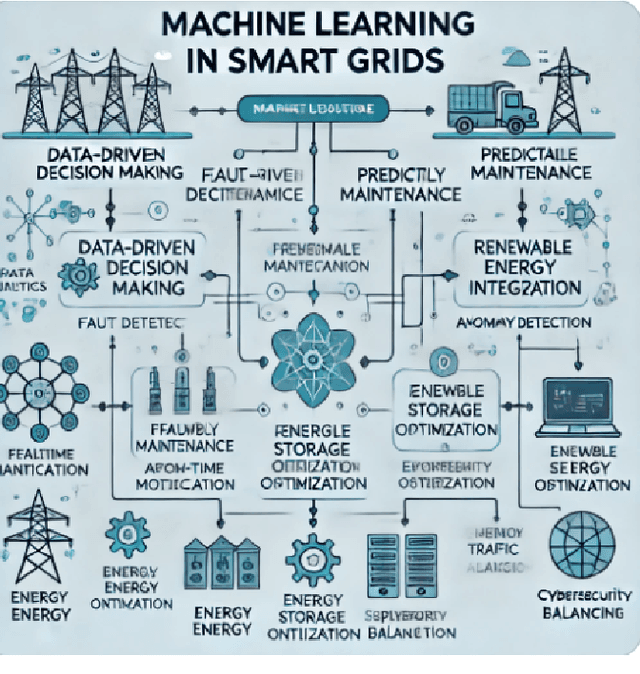Power Plays: Unleashing Machine Learning Magic in Smart Grids
Paper and Code
Oct 20, 2024


The integration of machine learning into smart grid systems represents a transformative step in enhancing the efficiency, reliability, and sustainability of modern energy networks. By adding advanced data analytics, these systems can better manage the complexities of renewable energy integration, demand response, and predictive maintenance. Machine learning algorithms analyze vast amounts of data from smart meters, sensors, and other grid components to optimize energy distribution, forecast demand, and detect irregularities that could indicate potential failures. This enables more precise load balancing, reduces operational costs, and enhances the resilience of the grid against disturbances. Furthermore, the use of predictive models helps in anticipating equipment failures, thereby improving the reliability of the energy supply. As smart grids continue to evolve, the role of machine learning in managing decentralized energy sources and enabling real-time decision-making will become increasingly critical. However, the deployment of these technologies also raises challenges related to data privacy, security, and the need for robust infrastructure. Addressing these issues in this research authors will focus on realizing the full potential of smart grids, ensuring they meet the growing energy demands while maintaining a focus on sustainability and efficiency using Machine Learning techniques. Furthermore, this research will help determine the smart grid's essentiality with the aid of Machine Learning. Multiple ML algorithms have been integrated along with their pros and cons. The future scope of these algorithms are also integrated.
 Add to Chrome
Add to Chrome Add to Firefox
Add to Firefox Add to Edge
Add to Edge